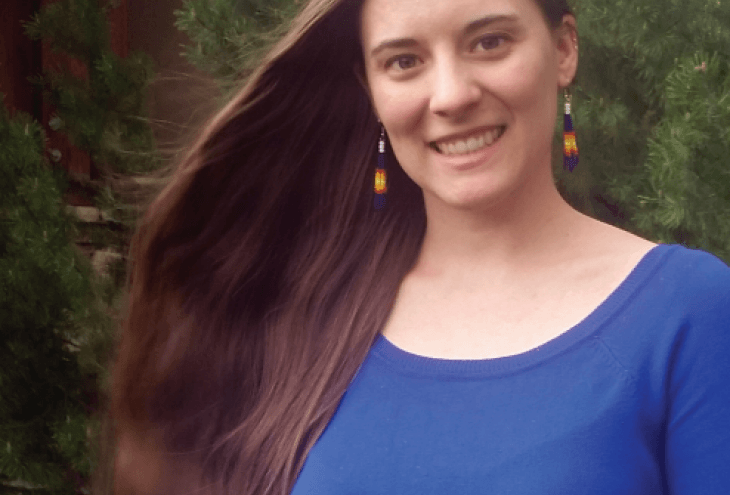For Chayla Rowley, a member of the Choctaw Nation of Oklahoma, working as a civil engineer focusing on water provides an opportunity to develop solutions that are beneficial to both people and nature. “It’s thrilling to know I can continue my ancestors’ long tradition of nurturing the Earth so future generations may enjoy her blessings,” Rowley says. This philosophy, rooted in her ancestral culture, serves Rowley well in her role with USDA’s Natural Resources Conservation Service (NRCS), working out of Steamboat Springs, Colo.
After earning a bachelor’s degree in civil engineering, specializing in water, and a concurrent master’s degree in civil engineering for developing communities from the University of Colorado Boulder, Rowley moved directly into her present job. In fact, she started her career as an intern with NRCS after being recruited at an AISES Career Fair. “I’ve attended each AISES conference since 2008,” she adds.
Rowley’s job offers variety and challenges that differ from other engineering positions. In the five-plus years she has worked at NRCS (including her time as an intern), Rowley says, “Some days I may be wading out in a river to determine the stability of a bank that is slowly eroding closer and closer to someone’s home. Other days I may be in the office designing a more efficient irrigation system to conserve water, ultimately improving someone’s livelihood and the health of the environment as well.” NRCS also helps local residents recover from natural disasters. Rowley worked on an NRCS team that addressed the aftermath of the 2013 flood on Colorado’s Front Range.
She also enjoys being able to see a project through from beginning to end. “Instead of working on a huge project where I do one small part and likely don’t meet the client, I get to be one on one with the client from the beginning,” Rowley says. “I like that the types of projects vary greatly, from creating fish habitats to designing largescale irrigation systems.”
But it’s not all work. “If you are driven, it’s easy to get tunnel vision and focus only on the job,” she says. Instead, Rowley points out that her “walk through life” includes community involvement in non-workrelated areas, such as leading a local Girl Scout troop and volunteering to help recent immigrants navigate in their new community. Of her volunteer experiences she says, “My overall quality of life skyrocketed. I’ve found that by purposefully joining organizations totally different from my career, I frequently have that feeling of ‘I’m alive!’”
Working for a government agency also provides Rowley with time to connect with her family and tribal community. “I’m able to earn and use more leave than some of my friends in private industry,” she says. This allows her to participate in tribal community events such as the Trail of Tears Commemorative Walk and the annual Choctaw Days, held at the Smithsonian National Museum of the American Indian in Washington, D.C. A new collateral duty as the Colorado NRCS American Indian/Alaska Native Special Emphasis Program Manager also allows her to promote cultural awareness.
Rowley has her sights set on more community building in the future. “Many role models — both individuals and communities — have shaped my life and contributed to my confidence that I am a person of substance, character, and worth,” she says. Some of these goals include building girls’ self-confidence, encouraging girls and Natives to train for STEM careers, and spreading sustainable community development across the globe.
Rowley, who spent many of her childhood years abroad, says she would like to return overseas someday, working to support developing communities in building infrastructure while honoring their cultures and goals. “My parents were missionaries with the United Methodist Church,” she says. “Their focus was on community development — my mother, Darla, in public health care and my father, Glenn, in education.” That experience gave Rowley a strong foundation in social justice and human rights: “My parents instilled in me the same desire to uphold these values, and I know it guided many of the steps on my walk of life.”
Being Native, Rowley also relates her life’s work to cultural aspects. “There is much discussion nowadays about breaking destructive cycles, such as those of poverty or abuse,” she says. “This is just as true about perpetuating positive cycles; we must remember our role in the cycle and ensure we are fulfilling it to the utmost of our ability.” The Earth provides people with what they need to live, she adds. “In turn, we invest in her well-being so our children will have what they need and eventually take on her care, perpetuating the cycle.”
Rowley sums up her career: “It is especially satisfying to know I am making a difference not only in the life of an individual and their family, but I am also doing so in such a way that is aimed at taking care of Mother Earth.”











